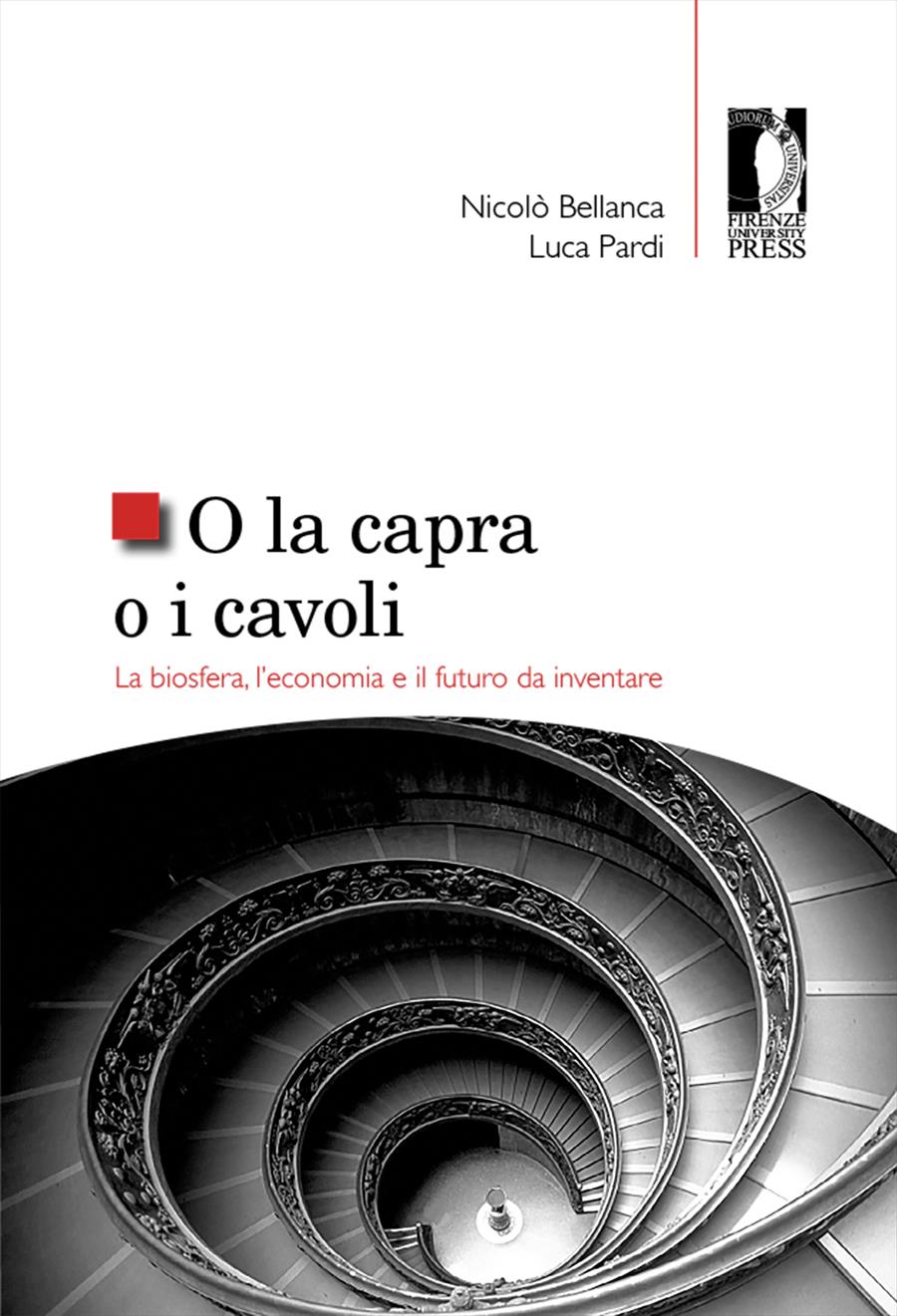- O la capra o i cavoli
- Nicolò Bellanca, Luca Pardi
Il capitalismo manageriale e la nuova centralità del potere sociale
- Nicolò Bellanca
- Luca Pardi
- © 2020 Author(s) |
- CC BY 4.0
- DOI: 10.36253/978-88-5518-195-2.08
Capitalism, in order to reproduce itself, must allocate more and more resources to the enhancement of the wealth already produced, rather than to increasing productive investments. The strategies for absorbing the surplus range from the reduction of supply to the creation of waste, from public spending to financialization. With the prevalence of these strategies, capitalism renounces to the maximum possible economic expansion in favour of its maximum expansion on society. It is a change that has consequences for environmental issues. The model of pure capitalism, in which the entire surplus is directed towards growth, is ecologically unsustainable. In today's historical capitalism, the goal of economic growth remains important, but it falls within that of increasing social power. Whether this is good or bad news for our biosphere will be discussed in other Chapters. Here we analyze the novelty.
- Keywords:
- Economic surplus,
- transnational capitalism,
- managerial capitalism,
- social power,
- financialization,
- economic growth,
University of Florence, Italy - ORCID: 0000-0002-3809-3455
CNR-IPCF, Institute for Chemical-Physical Processes, Italy - ORCID: 0000-0002-6870-1490
- H. Arendt, Le origini del totalitarismo, Einaudi, Torino 2004 (ed. orig. 1951).
- R. Ayres, Energy, Complexity and Wealth Maximization, Springer, New York 2016. P.A. Baran, Il surplus economico e la teoria marxista dello sviluppo, Feltrinelli, Milano 1971 (ed. orig. 1957). P. A. Baran e P. M. Sweezy, Il capitale monopolistico, Einaudi
- U. Bardi, The Seneca Effect. Why Growth is Slow but Collapse is Rapid, Springer, New York 2017.
- W. J. Baumol, Business Behavior, Value and Growth, Macmillan, London 1967.
- J. C. J. M. van den Bergh, A third option for climate policy within potential limits to growth, “Nature Climate Change”, 7, 2017, pp. 107-112.
- D. Bryan e M. Rafferty, Capitalism with Derivatives, Palgrave Macmillan, London 2006.
- D. Bryan & M. Rafferty, Financialization, in D. M. Brennan et al. (a cura di), Routledge Handbook of Marxian Economics, Routledge, London 2017, pp. 255-265.
- W. K. Carroll, The making of a transnational capitalist class, Zed Books, London 2010.
- M. Cyert e J.C. March, A Behavioral Theory of the Firm, Prentice-Hall, New York, 1963.
- G. W. Domhoff, Who Rules America?, McGraw Hill, New York 2013.
- G. Dumenil e D. Levy, Managerial Capitalism, Pluto Press, London 2018.
- L. Gallino, Finanzcapitalismo, Einaudi, Torino 2011.
- J. B. Glattfelder, Decoding Complexity. Uncovering Patterns in Economic Networks, Springer, New York 2013.
- R. A. Gordon, Business Leadership in the Large Corporation, The Brookings Institution, Washington D.C. 1945.
- C.A.S. Hall e K. Klitgaard, Energy and the Wealth of Nations. Understanding the Biophysical Economy, Springer, New York 20182.
- H. Harootunian, Marx after Marx. History and Time in the Expansion of Capitalism, Columbia University Press, New York 2015.
- D. Harvey, Marx e la follia del capitale, Feltrinelli, Milano 2018 (ed. orig. 2017). J. M. Keynes, Prospettive economiche per i nostri nipoti (1930), in Id., La Fine del laissez-faire e altri scritti, Bollati Boringhieri, Torino 1991.
- E. Lohoff e N. Trenkle, Die große Entwertung, Unrast, Münster 2012 (trad. francese: La grande dévalorisation, Post-Editions, Rotterdam 2014.
- E. Lohoff e N. Trenkle, Crisi: nella discarica del capitale, Mimesis, Sesto San Giovanni 2014.
- E. Lohoff, Per una discussione su La grande svalorizzazione e Denaro senza valore (2017), <https://francosenia.blogspot.com/2017/05/un-giocodi-specchi.html> (09/20).
- M. Mann, The Sources of Social Power, 4 voll., Cambridge University Press, Cambridge 1986-2012. Minqi Li, The Rise of China and the Demise of the Capitalist World-Economy, Pluto Press, London 2008.
- R. Marris, The Economic Theory of “Managerial” Capitalism, Macmillan, London 1964.
- E. T. Penrose, The Theory of the Growth of the Firm, Blackwell, Oxford 1959.
- W.I. Robinson, A Theory of Gobal Capitalism, Johns Hopkins University Press, Baltimore 2004.
- N. Roubini, The Coming Greater Depression of the 2020s, 28 aprile 2020, <https://www.project-syndicate.org/commentary/greater-depression-covid19-headwinds-bynouriel-roubini-2020-04> (09/20).
- L. Sklair, The Transnational Capitalist Class, Social Movements, and Alternatives to Capitalist Globalization, “International Critical Thought”, 6(3), 2016, pp. 329-341.
- L. Sklair, Competing Conceptions of Globalization, in C. Chase-Dunn e S. J. Babones (a cura di), Global Social Change, The John Hopkins University Press, Baltimore 2006.
- A. Smith, La ricchezza delle nazioni, Utet, Torino 2017 (ed. orig. 1776), Libro I, capitolo 5.
- D. P. Sotiropoulos et al., A Political Economy of Contemporary Capitalism and its Crisis: Demystifying Finance, Routledge, London 2013.
- O. E. Williamson, The Economics of Discretionary Behavior, Prentice-Hall, New York 1964.
- O.E. Williamson, Corporate Control and Business Behavior, Prentice-Hall, New York 1970.
Chapter Information
Chapter Title
Il capitalismo manageriale e la nuova centralità del potere sociale
Authors
Nicolò Bellanca, Luca Pardi
Language
Italian
DOI
10.36253/978-88-5518-195-2.08
Peer Reviewed
Publication Year
2020
Copyright Information
© 2020 Author(s)
Content License
Metadata License
Bibliographic Information
Book Title
O la capra o i cavoli
Book Subtitle
La biosfera, l’economia e il futuro da inventare
Authors
Nicolò Bellanca, Luca Pardi
Peer Reviewed
Number of Pages
210
Publication Year
2020
Copyright Information
© 2020 Author(s)
Content License
Metadata License
Publisher Name
Firenze University Press
DOI
10.36253/978-88-5518-195-2
ISBN Print
978-88-5518-194-5
eISBN (pdf)
978-88-5518-195-2
Series Title
Studi e saggi
Series ISSN
2704-6478
Series E-ISSN
2704-5919
